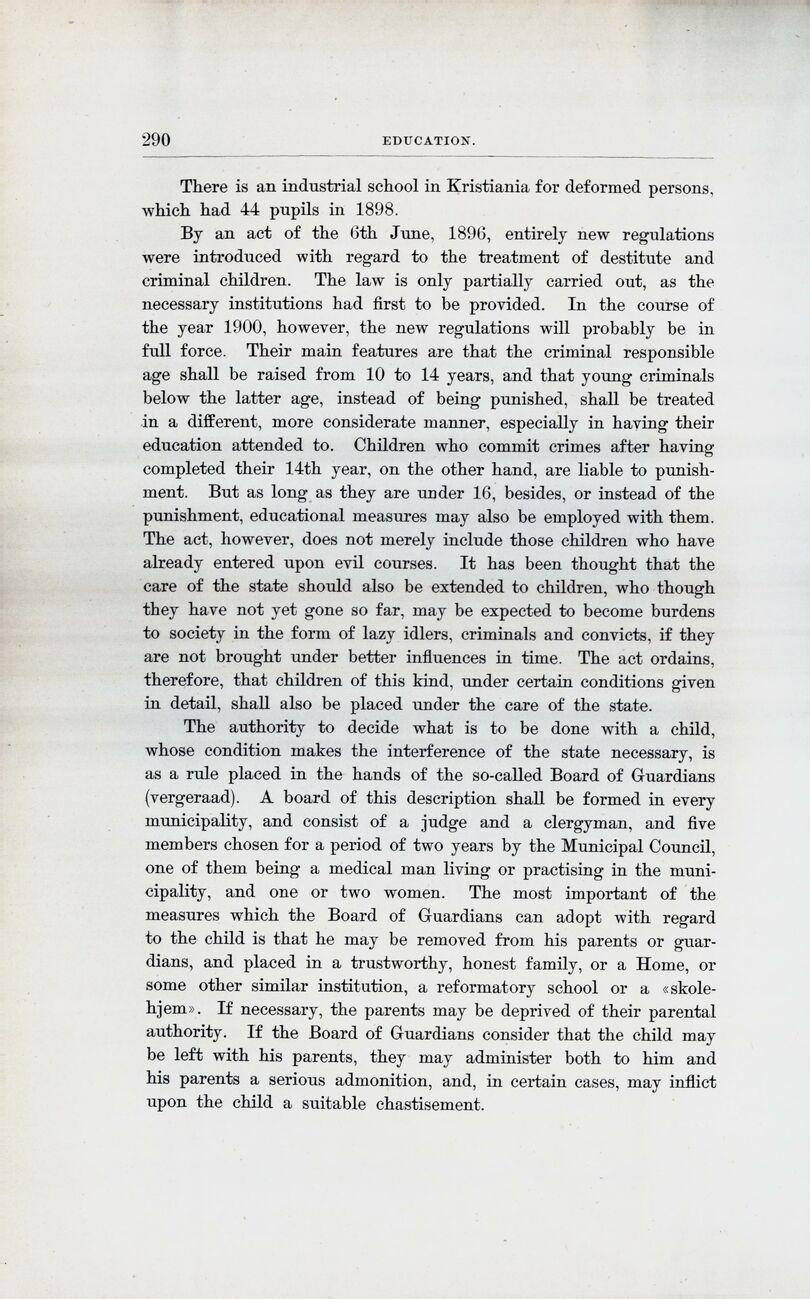
Full resolution (JPEG) - On this page / på denna sida - Education, by J. V. Heiberg

<< prev. page << föreg. sida << >> nästa sida >> next page >>
Below is the raw OCR text
from the above scanned image.
Do you see an error? Proofread the page now!
Här nedan syns maskintolkade texten från faksimilbilden ovan.
Ser du något fel? Korrekturläs sidan nu!
This page has been proofread at least once.
(diff)
(history)
Denna sida har korrekturlästs minst en gång.
(skillnad)
(historik)
There is an industrial school in Kristiania for deformed persons,
which had 44 pupils in 1898.
By an act of the 6th June, 1896, entirely new regulations
were introduced with regard to the treatment of destitute and
criminal children. The law is only partially carried out, as the
necessary institutions had first to he provided. In the course of
the year 1900, however, the new regulations will probably be in
full force. Their main features are that the criminal responsible
age shall be raised from 10 to 14 years, and that young criminals
below the latter age, instead of being punished, shall be treated
in a different, more considerate manner, especially in having their
education attended to. Children who commit crimes after having
completed their 14th year, on the other hand, are liable to
punishment. But as long as they are under 16, besides, or instead of the
punishment, educational measures may also be employed with them.
The act, however, does not merely include those children who have
already entered upon evil courses. It has been thought that the
care of the state should also be extended to children, who though
they have not yet gone so far, may be expected to become burdens
to society in the form of lazy idlers, criminals and convicts, if they
are not brought under better influences in time. The act ordains,
therefore, that children of this kind, under certain conditions given
in detail, shall also be placed under the care of the state.
The authority to decide what is to be done with a child,
whose condition makes the interference of the state necessary, is
as a rule placed in the hands of the so-called Board of Guardians
(vergeraad). A board of this description shall be formed in every
municipality, and consist of a judge and a clergyman, and five
members chosen for a period of two years by the Municipal Council,
one of them being a medical man living or practising in the
municipality, and one or two women. The most important of the
measures which the Board of Guardians can adopt with regard
to the child is that he may be removed from his parents or
guardians, and placed in a trustworthy, honest family, or a Home, or
some other similar institution, a reformatory school or a
«skolehjem». If necessary, the parents may be deprived of their parental
authority. If the Board of Guardians consider that the child may
be left with his parents, they may administer both to him and
his parents a serious admonition, and, in certain cases, may inflict
upon the child a suitable chastisement.
<< prev. page << föreg. sida << >> nästa sida >> next page >>